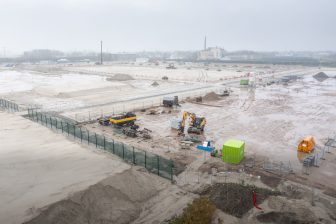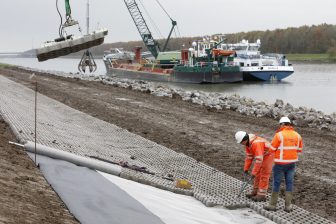25 mln US dollar to irrigation project Afghanistan
Afghanistan: World Bank Provides Further Grant Support to Help Improve Irrigation Infrastructure
Washington, United States of America – The World Bank approved 2007-04-10 a US$25 million additional grant to the Afghanistan Emergency Irrigation Rehabilitation Project, to continue supporting the Government of Afghanistan’s effort to provide farmers with adequate and reliable supply of water in the traditional irrigation schemes. This grant will be additional financing to the US$40 million Credit approved by the World Bank on December 23, 2004 to sustain these efforts.
The original project was estimated to cost US$75 million and to be co-financed by the World Bank and other donors. It was designed to increase agricultural productivity and farm income, improve food security and livelihoods, and reduce vulnerability of farmers to droughts. However, apart from the US$40 million Credit funds provided by the Bank, the Government could not secure the balance funding requirement to complete the scope of the project. This additional grant financing from the Bank will ensure the completion of 635 water irrigation schemes which could have been left out if the award of contracts were terminated due to lack funds.
Afghanistan, due to its harsh terrain filled with mountains and deserts and arid climate, is an unforgiving place for agriculture. The sector has suffered from nearly a quarter century of prolonged war, political upheavals, damaging floods and drought, and neglected maintenance of the irrigation infrastructure. Nearly 80 percent of Afghan population lives in rural areas and most of them depend on non-poppy agriculture. Only 12 percent of the land is arable, and 85 percent of that land requires irrigation.
“Adequate and reliable supply of irrigation is absolutely essential for sustainable agricultural production, which is pivotal for overall economic growth and poverty reduction,”said Nihal Fernando, Senior Rural Development Specialist and Project Team Leader. “This project will address major water management problems of the traditional irrigation schemes of the country, and aims to restore agricultural production and raise incomes of farmers through the provision of improved and reliable irrigation supplies.
In its three years of operation, the project has made significant achievements. The sub-projects completed to date have benefited an incremental area of nearly 54,000 ha of farm lands with reliable and adequate irrigation supplies. Those are the lands which could not be cultivated prior to the project due to defective and temporary nature of the irrigation canal structures.
With this additional financing, the project is expected to complete the rehabilitation of 750 medium and lesser irrigation schemes and 10 large schemes to bring back irrigated farming in about 80,000 ha of lands. The additional funds will also be used to begin the reestablishment and modernization of the destroyed hydrometeorlogical network of the country, enabling the collection of adequate and reliable hydrological and meteorological data required for water resources management and development planning in the future. In addition, the project will produce a feasibility study for the proposed Lower Kokcha multi-purpose water development. This will enable the Government to make an investment decision for the development of water resources for the generation of hydropower and agricultural production in about 166,000 ha.
The project will be implemented by the Ministry of Energy and Water (MEW).
For more information on the World Bank’s activities in Afghanistan, visit: www.worldbank.org.af
U las zojuist één van de gratis premium artikelen
Onbeperkt lezen? Profiteer nu van de introductieaanbieding voor € 10,- per maand.
Bent u al abonnee?



